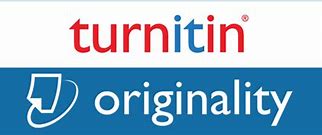PELATIHAN KOMUNIKASI INTERPERSONAL BERBASIS KOMPETENSI UNTUK MENINGKATKAN KOMUNIKASI KERJA TIM KELOMPOK KADER POSYANDU
DOI:
https://doi.org/10.47313/jib.v41i62.659Keywords:
Teamwork, posyandu cadre groups, interpersonal communication, communication trainingAbstract
The effectiveness of teamwork is the main key of the group performance, group cohesion, collective efficacy and member satisfaction (Aguado et al, 2014). Ineffective teamwork in a group occurs because of the lack of effective communication skills of members (Steven & Campions, 1994). The problem of ineffective teamwork due to lack of communication skills is experienced by one group of Posyandu cadres in East Jakarta. To improve teamwork communication the Posyandu cadre group, researchers conducted interpersonal communication training interventions. This intervention study is quantitative and qualitative field research with design, after and before with control design. The results of the statistical analysis showed an increase in the working communication of the Posyandu cadre team after attending interpersonal communication training. Based on observations and interviews related to teamwork communication, that are known to make formal communication, are able to communicate openly and supportively, listen more and respond positively to other cadres' opinions, increasingly recognize communicating non-verbally from other cadres, and reprimand also talk lightly when discussing.References
Aguado, D., Rico, R., Manzanares, M., & Salas, E. (2014). Teamwork Competency Test: A step forward on measuring teamwork competencies. Group Dynamic: Theory, Research and Practice, American Psychological Association, 18 (2), 101-121. Doi: 10.1037/a0036098
Ali Akbar, M., Kandarina, I., & Gunawan, I. (2016). Studi ketidakaktifan kader posyandu di Wilayah Kerja Puskesmas Paramasan, Banjar, Kalimantan Selatan. Jurnal Gizi dan Dietetik Indonesia (Indonesian Journal of Nutrition and Dietetics), 3 (1), 60-67. Doi: 10.21927/ijnd.2015
Banarjee, A., Slagle, J, M., Mercaldo, N, D., Booker, R., ..., & Weinger, M, B. (2016). A simulation-based curriculum to introduce key teamwork principles to entering medical students. BMC Medical Education, 16, 295. Doi: 10.1186/s12909-016-0808-9 Bidayati, U. (2017). Commitment, motivation, and performance of cadre posyandu. Advances in Intelligent System Research, 131.
Buunk, A, P., & Van Vugt, M. (2013). Applying Social Psychology. London, UK : SAGE Publication
Creswell, J, W. (2014). Research Design: Qualitative, Quantitative, and Mixed Methods Approaches (4th ed). CA, USA: SAGE Publications
Creswell, J, W. (2010). Educational Research: Planning, Conducting and Evaluating Quantitative and Qualitative Research. Boston, USA: Pearson
Cozby, P, C., & Bates, S, C. (2011). Methods in Behavioral Research (8th ed). NY, USA: The Mcgraw-Hill Companies
DeVito, J, A. (2015). Human Communication: The Basic Course (13th ed). NY, USA: Pearson Education
Duffy, D, F., Gordon, G, H., Whelan, G., Cole-kelly, K., frankel, R. (2004). Assessing Competence in Communication and Interpersonal Skills: The Kalamazoo II Report. Academic Medicine, 79 (6), 495-507.
Forsyth, D, R. (2010). Group Dynamics (5th ed). CA, USA: Wadsworth Cengage Learning
Gilroy, K, E., & Winch, P. (2006). Management of sick children by community health workers. Intervention models and programme examples. Geneva, Swiss: WHO-UNICEF
Husniyawati, R, Y, & Wulandari, R, D. (2016). Analisis motivasi tehadap kinerja kader posyandu berdasarkan teori Victor Room. Jurnal Administrasi Kesehatan Indonesia, 4, 126-135
Hynes, G, E. (2012). Improving employee’s interpersonal communication competencies: A qualitative study. Business Communication Quarterly, 75 (4), 466-475. Doi: 10.1177/1080569912458965
Iswarawati, N, D. (2010). Kader Posyandu: Peranan dan tantangan pemberdayaannya dalam usaha peningkatan gizi anak di Indonesia. Jurnal Manajemen Pelayanan Kesehatan, 13 (4), 169-173 Johnson, D., & Johnson, F. (20). Joining Together (11th ed). London, UK: Pearson New International Edition
Kementerian Kesehatan. (2011). Pedoman Pengelolaan Posyandu. Jakarta, Indonesia: Penerbit
Kok, M, C., Dieleman, M., Taegtmeyer, M., Broerse, J, E, W., Kane, S, S., ..... , & AM de Koning, K. (2014). Which intervention design factors influence performance of community health workers in low- and middle-income countries? A systematic review. Health Policy and Planning Advance, 1-21. Doi:10.1093/heapol/czu126
Kumar, R. (2005). Research Methodology (2nd edition): A step-by-step guide for beginners. London, UK: SAGE Publication
Lacerenza, N, C., Marlow, S, L., Tannenbaum, I, S., Salas, E. (2018). Team development interventions: Evidence-based approaches for improving teamwork. American Psychological Association, 73 (4), 517-531. Doi: 10.1037/amp0000295
Mathieu, E, J., Hollenbeck, R, J,. Van Knippenberg, D., & Ilgena, R, D. (2017). Century of Work Teams in the Journal of Applied Psychology. Journal of Applied Psychology, American Psychologist Associations, Vol. 102, No. 3, 452–467. Doi: 10.1037/apl0000128
McClough, A, C., dan Rogelberg, S, G. (2003). Selection in Teams: An exploration of the teamwork knowledge, skills, and ability test. International Journal of Selection and Assessment, 11 (1), 56-66
McEwan, D., Rulsssen, G, R., Eys, M, A., Zumbo, B, D., Beauchamp, M, R. (2016). The effectiveness of teamwork training on teamwork behaviors and team performance: A systematic review and metaanalysis of controlled interventions. PloS ONE, 12 (1), 1-23. Doi: 10.1371/journal.pone.0169604
Michailova, S., dan Sidorova, E. (2011). From group-based work to organisational learning: The role of communication forms and knowledge sharing. Knowledge Management Research & Practice, 9, 78-73. Doi: 10.1057/kmrp.2011
Mitsunaga, T., Hedt-Gauthier, B., Ngizwenayo, E., Farmer, D, B., Karamaga, A., ... , Mugeni, C. (2013). Utilizing community health worker data for program management and evaluation: Systems for data quality assessments and baseline results from Rwanda. Social Science & Medicine, 85, 87-92. Doi: 10.1016/j.socscimed.2013.02.033
Nazri, C., Yamazaki, C., Kameo, S., Herawati, D., ..., Hiroshi, K. (2016). Factors influencing mother’s participation for improving nutritional status of childre under-five in Aceh Utara district, Aceh Province, Indonesia. BMC Public Health, 16 (69). Doi: 10.1186/s12889-0162732-7
Pemerintahan Kota Admininstrasi Jakarta Timur. (2018). Profil Wilayah Jakarta Timur. Jakarta, DKI: Penulis. Diakses dari https://timur.jakarta.go.id/v11/
Poerwandari, K. (2005). Pendekatan Kualitatif untuk Penelitian Perilaku Manusia. Depok, Indonesia : LPSP3 Fakultas Psikologi Universitas Indonesia
Purhonen, P. (2012). Interpersonal communication competence and collaborative interaction un SME internalization (doktoral disertasi). Tersedia di perpustakaan database disertasi, University of Jyväskylä, Finlandia. (Väitöskirjat [2052]). Diunduh dari: https://jyx.jyu.fi/handle/123456789/37688
Renate., Ilmi, B., Arifin, S. (2016). Factor’s associated with performance of Posbindu PTM cadres. EPRA International Journal of Multidisciplinary Research, 2(7), 2455-3662
Rosnow, R, L., & Rosnow, M. (2009). Writin Papers in Psychology (8th edition). California, USA: Wadsworth Cengage Learning
Rubin, R, B., & Martin, M, M. (1994). Development of a measure of interpersonal communication competence. Communication Research Reports, 11 (1), 33-44. Doi: 10.1080/08824099409359938
Salas, E., DiazGranados, D., Klein, C., Burke, C, S., Stagl, K, C., Goodwin, G, F., & Halpin, S, M. (2008). Does team training improve team performance? A meta-analysis. Human Factors, 50, 903-933. Doi: 10.1518/001872008X375009 Salas, E., Tannenbaum, S. I., Kozlowski, S. W., Miller, C. A., Mathieu, J. E., & Vessey, W. B. (2015). Teams in space exploration: A new frontier for the science of team effectiveness. Current Directions in Psychological Science, 24, 200–207. Doi: 10.1177/0963
Sargent, J., MacLeod, A., & Murray, A. (2011). An interprofessional approach to teaching communication skills. Journal of Continuing Education in The Health Professionals, 31 (4), 265-267
Sharlanova, V. (2004). Experiential Learning. Trakia Journal of Sciences, 2 (4), 36-39. Diakses dari: http://www.uni-sz.bg
Shaugnessy, Zechmeister, & Zechmeister. (2000).
Sternberg, R, J., & Zhang, L, F. (2000). Perspectives on cognitive, learning, and thinking styles. New Jersey, USA: Lawrence Erlbaum
Steven, M, J., & Campions, M, A. (1994). The Knowledge, Skill, and Ability Requirements for Teamwork: lmplications for Human Resource Management. Journal of Management, 20 (2), 503-530.
Susilowati, M. (2012). Peningkatan kompetensi komunikasi interpersonal dan kinerja pre-ops pilot selama masa percobaan di PT. X dengan memberikan pelatihan komunikasi interpersonal yang efektif (magister thesis). Tersedia dari perpustakaan database tesis, Universitas Indonesia, Depok, Indonesia. (UI-ANA No. T 31227)
Tarricone, P., dan Luca, J,. (2002). Succesful teamwork; A case study. HERDSA and Educational non-proft Institutions. Australia : Edith Cowan University
Thompson, B, M., Levine, E, R., Kennedy, F., Naik, D, A., ...., Haidet, P. (2009). Academic Medicine, 84 (10), 125-127
World Health Organization. (2006). The World Health Report 2006: Working together for health. Geneva, Swiss: Penerbit
World Health Organization (2010). Global Experience of Community Health Workers for Delivery of Health Related Millennium Development Goals: A Systematic Review. Country Case Studies, and Recommendations for Integration into National Health Systems. Geneva, Swiss: Global Health Workforce Alliance Worsnop, P, J. (1993). Competency Based Training: How To Do It-For Trainers. Canberra, Australia: Educational Resources Information Center (ERIC).








